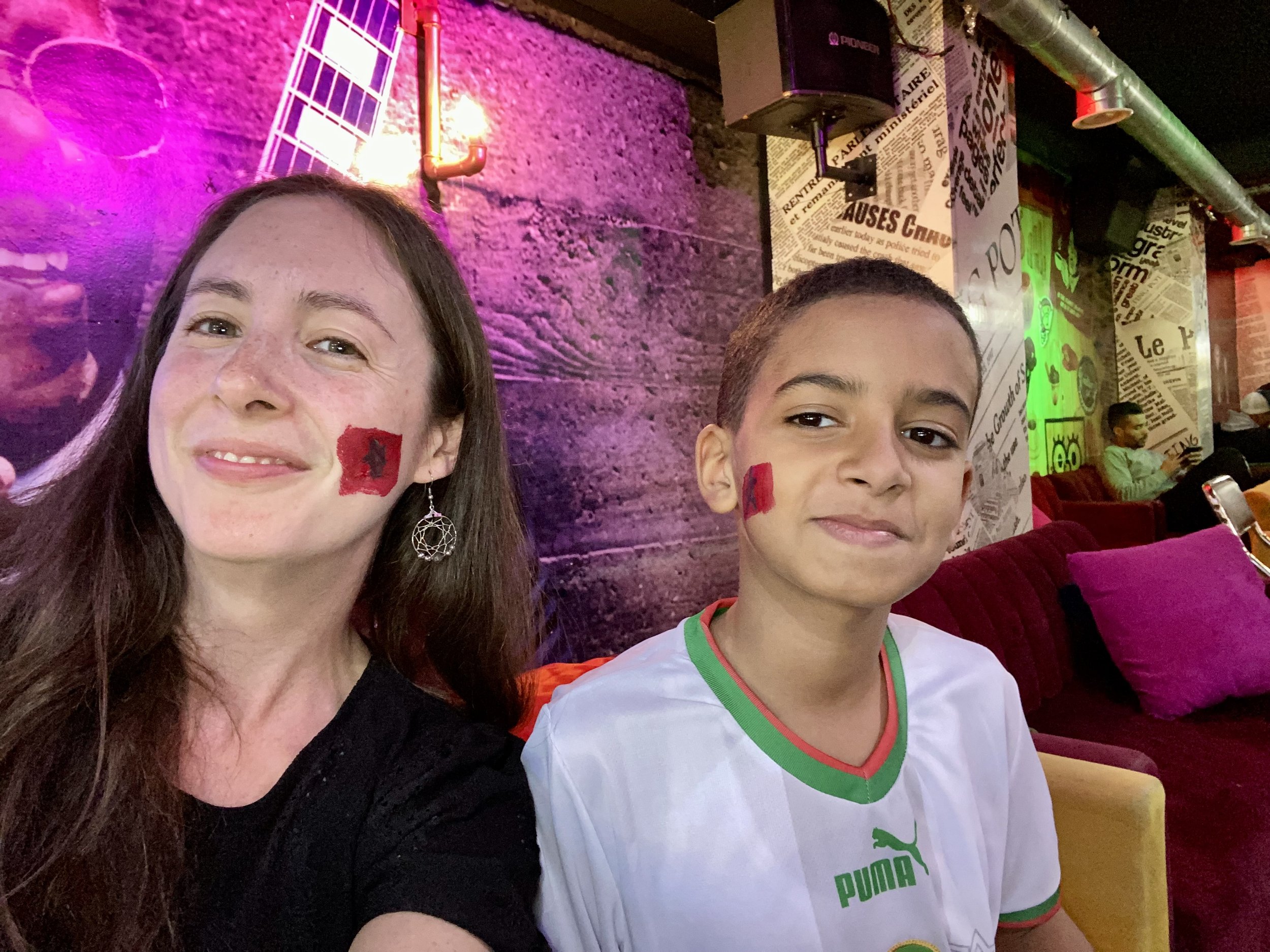What I Learned About Marrakech by Changing My Attitude
[This blog post was written in 2013 and edited in 2023.]
“I never asked you to follow me!” I yelled in French.
“You were lost!” the young man shot back.
“No I wasn’t! I knew how to get here!”
“You still have to pay me!”
“No I don’t – I didn’t want your help!”
I huffed into La Maison de la Photographie, slamming the door on the tangle of passages outside and the young man who had followed me here (and then demanded money for showing me the way). The aggression of Marrakech was exhausting.
Another young man sat at the front desk of the museum. His head shot up as I stormed in.
“Oh no, you have problem with the people?” he asked.
“Yes,” I said, “someone was demanding money from me.”
The man nodded. “Come inside, sit down. I apologize for him.”
I sank down into the chair and exhaled.
“I want to give you this book as a gesture of friendship,” he said, handing me a beautiful photo book of Jamaâ El Fna Square (the main square in Marrakech). I sat with him for about an hour, chatting and helping him translate the museum’s e-newsletter into English.
It’s hard to navigate the assault of the endless salesmen (and the one saleswoman who grabbed me, turned me around, and began shoving products into my hands). I eventually realized that everyone was just trying to make a living and I could decide to stay annoyed for the entire trip or change my attitude.
My emotions were evoked every time I stepped out the door. There was no passivity. People didn’t walk down the street lost in their own thoughts or immersed in their smartphones. They interacted with those around them. So I did, too.
I began to respond to those who approached me with feistiness – I felt challenged and alive. In my home environment, I’m used to more private space – even when in public – and people “minding their own business”. But what began as a cultural clash turned into lessons about the culture of this city:
Marrakech is a socially-centred society that is human-driven, as opposed to a convenience-centred society that is technology-driven.
Tapping into the nuances of my reactions allowed me to see the nuances of this culture. Instead of clumping all men together as swindlers, for example, I began noticing and engaging with the many people who were genuine. I made friends and was treated as a guest instead of a tourist, invited into homes and even given gifts instead of being harassed to buy things.
I also realized that Moroccans love to banter. Most tourists are polite and try to escape the vendors as quickly as possible – or try to ignore them completely – but this only leads to more harassment. When I realized how emotionally frazzled I was while walking in the souq, I began to push back and call out the merchants.
They loved it. I would see them again and again and they would tease me but not try the hard sell. Less frustration bubbled up in me and more playfulness came out.
Lori Henry watching the World Cup in Fez with her favourite young Moroccan.
I returned to Morocco last year, this time to Fez. I kept this approach to navigating the souq and had an amazing adventure. I was “adopted” by a family and invited in for family meals and taken all over the city to eat, hear live music, and watch the World Cup with locals. I have grown to love this country and especially it’s people.
Book recommendations: Lonely Planet Morocco, Fodor's Essential Morocco, The Rough Guide to Morocco, Moon Morocco and DK Eyewitness Morocco.
* The above links are to Amazon and are for your reference. I receive a small referral fee if you buy from Amazon. But I encourage you to buy books from any retailer, ideally your local bookstore!

